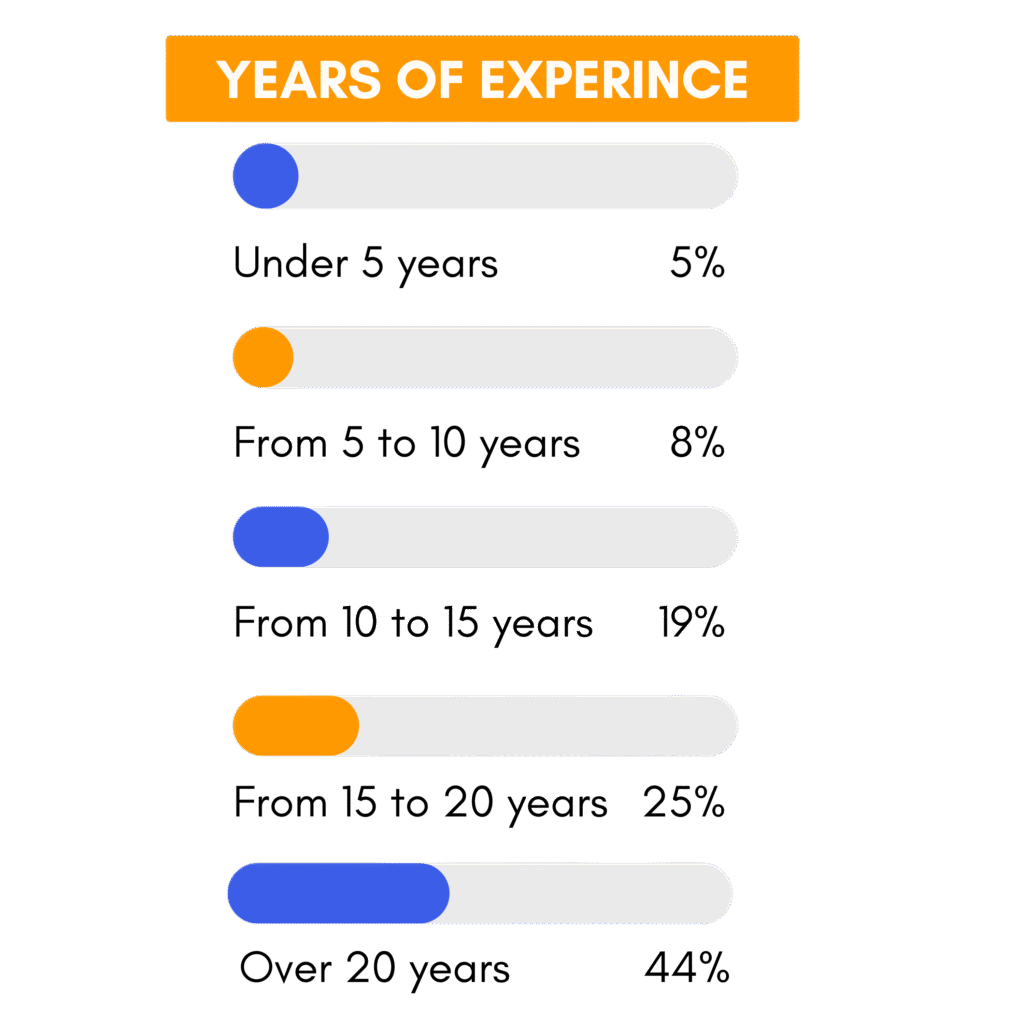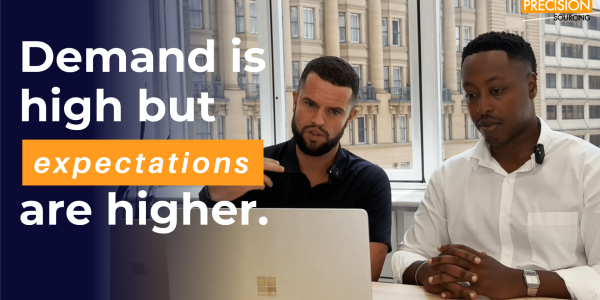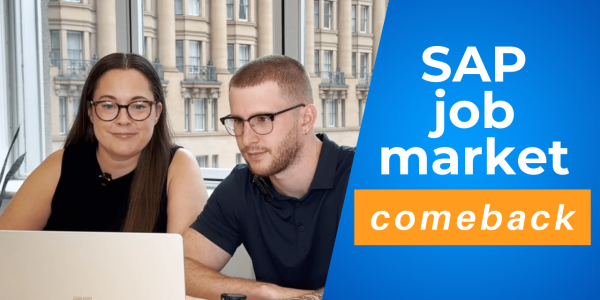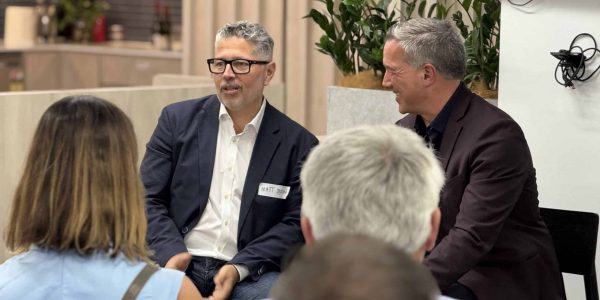Each year, Precision Sourcing surveys over 4,000 professionals in Australia’s SAP community to better understand how talent is thinking, moving, and shaping the market. The results provide not only data points, but also valuable insights for hiring managers, SAP partners, and professionals planning their next career move.
In our latest Configure It Done podcast, members of our SAP team broke down the findings. Here are the key takeaways.
Gender Diversity Is Improving, But Slowly
The survey revealed a split of 75% male to 25% female in the SAP workforce. While still heavily male-dominated, the positive news is that representation has improved from the previous 80% vs 20% ratio.
Efforts such as graduate programs, uplifting employees from HR or Finance into IT, and an industry-wide push for inclusion are beginning to bear fruit. Though the change is incremental, these “one percenters” contribute to long-term progress in building more diverse leadership teams and driving diversity of thought.
Contract vs Permanent Roles: A Market Shift
Historically, the SAP market in Australia has leaned toward contract roles, with contractors making up as much as 65% of the workforce. However, 2025 marks a turning point: for the first time since we began this survey, contract and permanent roles are split evenly at 43% each, with the remainder fixed-term.
This shift reflects both economic conditions and hiring strategies. After a downturn, professionals sought stability through permanent roles, while partners built internal capability in anticipation of upcoming projects. That said, as the market warms and more large-scale programs launch, we expect contract demand to rise once again.

Certifications: Valuable, But Not Essential
Half of respondents reported being SAP certified, but 48% felt certifications are not directly relevant to their role. While certifications can set candidates apart in a crowded market, they are not always the deciding factor in hiring.
Nevertheless, SAP itself places strong emphasis on certification, with nearly 100% of its Australian workforce holding credentials across S/4HANA, BTP, and Cloud technologies. As technology continues to evolve, professionals investing in certifications demonstrate readiness to adapt and upskill – a signal increasingly attractive to employers.

Optimism Around S/4HANA
Encouragingly, 84% of the SAP community expressed a positive outlook on S/4HANA. Confidence in SAP’s strategy, coupled with a “fail fast” approach to innovation, has buoyed sentiment across the market.
Australia has historically lagged in large-scale SAP adoption, but with the 2027 deadline looming, organisations are acknowledging the need to embrace transformation. The next wave of S/4 projects represents opportunity not just for businesses, but also for contractors and consultants eager to contribute to high-impact programs.
The Hybrid Workplace Debate
Flexibility remains a decisive factor for candidates. The survey found that 50% of SAP professionals currently work in the office two to three days per week.
For hiring managers, this insight is critical. Enforcing five days in the office immediately eliminates half of the potential talent pool. Moreover, employees who accept rigid arrangements often return to the market within months – which represents a clear retention risk. The recommendation? Avoid blanket rules and embrace flexibility to secure and retain the best talent.
What Talent Wants Most: Fair Pay
Unsurprisingly, remuneration has returned to the top of candidate priorities. A few years ago, emerging technology experience was the number one motivator, but today, professionals – many balancing mortgages and families – are focused on financial stability.
This doesn’t mean chasing inflated salaries; most are simply seeking fair market rates. Employers who undercut or lowball offers may save in the short term but risk churn, which is far more costly in the long run.

An Ageing Workforce and Looming Retirements
One of the most concerning findings is that 13% of SAP professionals plan to retire within the next five years. Considering that over 60% of the current workforce has more than 15 years’ experience, this poses a major risk for both talent supply and knowledge transfer.
With under 5% of the workforce having five years’ experience or less, the pipeline of new talent is not developing quickly enough. Without graduate programs, upskilling initiatives, or strategic mentoring, the market faces a dangerous skills gap.
Hiring managers embarking on S/4HANA journeys should consider pairing senior consultants with juniors or internal staff to ensure critical knowledge is passed on. The long-term strength of the SAP ecosystem depends on addressing this imbalance now.

The State of the SAP Market
The Australian SAP market in 2025 can best be described as stabilised. While not yet booming, activity is simmering, with strong signs of acceleration ahead. By 2026, we anticipate an increase in contract roles driven by rising project volumes and S/4 transformations.
For professionals, the key will be staying agile – embracing certifications, flexible working arrangements, and fair market remuneration. For hiring managers, the challenge lies in strategically balancing experienced hires with talent development to safeguard capability for the next decade.
The State of the SAP Market
To explore these insights further, Precision Sourcing is hosting two upcoming events:
October 30th (Sydney): An intimate session unpacking the SAP Talent Survey and what it means for hiring managers.
November 20th (Sydney): A headline event featuring two CIOs sharing their unique S/4HANA transformation journeys – one a successful six-month Greenfield delivery, and the other a four-year retail transformation, the largest in the Southern Hemisphere.
Both events are strictly invite-only and promise actionable insights and real-world perspectives you won’t hear anywhere else. To secure your spot or learn more, please reach out directly to the Precision Sourcing SAP team. Places are limited, so early expressions of interest are encouraged.
No related author found.







